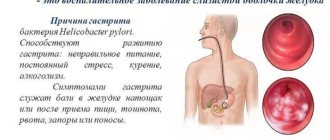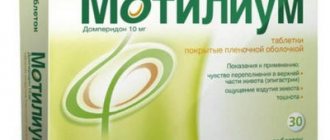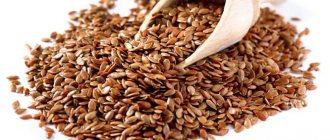Home | About us | Delivery | Advertisers | Login | Registration
Delivery on Sundays and holidays does not work!
- Medicines
- dietary supplementsVitamins
- Categories from A to Z
- Brands from A to Z
- Products from A to Z
- Medical equipment
- beauty
- Child
- Care
- Honey products appointments
- Herbs and herbal teas
- Medical nutrition
- Journey
- Making medicinesStock
Pharmacy online is the best pharmacy in Almaty, delivering medicines to Almaty. An online pharmacy or online pharmacy provides the following types of services: delivery of medicines, medicines to your home. Online pharmacy Almaty or online pharmacy Almaty delivers medicines to your home, as well as home delivery of medicines in Almaty.
my basket
Apteka84.kz is an online pharmacy that offers its customers medicines, medicinal and decorative cosmetics, dietary supplements, vitamins, baby food, intimate products for adults, medical equipment and thousands of other medical and cosmetic products at low prices. All data presented on the Apteka84.kz website is for informational purposes only and is not a substitute for professional medical care. Apteka84.kz strongly recommends that you carefully read the instructions for use contained in each package of medicines and other products. If you currently have any symptoms of the disease, you should seek help from a doctor. You should always tell your doctor or pharmacist about all the medicines you take. If you feel you need further help, please consult your local pharmacist or contact our GP online or by telephone.
© 2022 Pharmacy 84.
Instructions Cardiomagnyl
The drug should be used after a doctor's prescription.
ASA can provoke bronchospasm, as well as cause attacks of bronchial asthma and other hypersensitivity reactions. Risk factors include a history of bronchial asthma, hay fever, nasal polyposis, chronic respiratory diseases, and allergic reactions to other drugs (for example, skin reactions, itching, urticaria).
ASA can cause bleeding of varying severity during and after surgery. Several days before planned surgery, the risk of bleeding should be assessed in comparison with the risk of ischemic complications in patients taking low doses of ASA. If the risk of bleeding is significant, ASA should be temporarily discontinued.
The combination of ASA with anticoagulants, thrombolytics and antiplatelet drugs is accompanied by an increased risk of bleeding.
ASA in low doses can trigger the development of gout in predisposed patients (those with reduced excretion of uric acid).
The combination of ASA with methotrexate is accompanied by an increased incidence of side effects from the hematopoietic organs.
High doses of ASA have a hypoglycemic effect, which must be kept in mind when prescribing it to patients with diabetes mellitus receiving oral hypoglycemic agents and insulin.
When using systemic glucocorticosteroids (GCS) and salicylates in combination, it should be remembered that during treatment the concentration of salicylates in the blood is reduced, and after discontinuation of systemic glucocorticosteroids (GCS), an overdose of salicylates is possible.
Metamizole and some NSAIDs (including ibuprofen, naproxen) can weaken the inhibitory effect of ASA on platelet aggregation. Patients taking ASA and planning to take metamizole or NSAIDs should discuss this with their doctor (see section "Interactions with other drugs").
Exceeding the dose of ASA above the recommended therapeutic doses is associated with the risk of gastrointestinal bleeding.
With long-term use of low doses of ASA as aggregative therapy, caution must be exercised in elderly patients due to the risk of gastrointestinal bleeding.
When taking ASA simultaneously with alcohol, there is an increased risk of damage to the mucous membrane of the gastrointestinal tract and prolongation of bleeding time.
In patients with impaired renal function or in patients with circulatory impairment resulting from damage to the renal arteries, chronic heart failure, hypovolemia, major surgery, sepsis or cases of massive bleeding, Cardiomagnyl should be used with caution, since ASA may increase the risk of developing acute renal failure and renal dysfunction.
In severe forms of glucose-6-phosphate dehydrogenase deficiency, ASA can cause hemolysis and hemolytic anemia. Factors that may increase the risk of hemolysis include fever, acute infections and high doses of the drug.
Medicines containing ASA should not be used in children and adolescents to treat viral infections with or without fever without consulting a doctor. Certain viral illnesses, such as influenza A, influenza B and chickenpox, are at risk of developing Reye's syndrome, a very rare but life-threatening illness that requires immediate medical attention. The risk may be increased if ASA is used as concomitant therapy, but a causal relationship has not been confirmed. Uncontrollable vomiting in these diseases may be a symptom of Reye's syndrome.
When using the drug independently, you should not exceed the maximum duration and recommended doses. If there is no improvement or if the symptoms of the disease worsen, it is recommended to consult a doctor.
When is Cardiomagnyl not recommended for gastritis?
Regardless of the patient’s hematological parameters, take it for gastritis.
Cardiomagnyl should not be used in the following cases:
- open ulcer in the stomach or duodenum;
- erosive lesions of the gastric mucosa in the acute stage;
- tendency to bleeding from the gastrointestinal tract (weakness of blood vessels, disease of the gastric mucosa, accompanied by thinning of the inner wall of the stomach)
Cardiomagnyl cannot be used for these conditions. Taking the medication will negatively affect the condition of the stomach and intestines. In these pathologies, increased blood viscosity should be treated with other drugs that do not affect the functions of the gastrointestinal tract. At the same time, the patient is not always prescribed to take pills - to prevent damage to the gastric mucosa, drugs are prescribed by intravenous or intramuscular injection.
How to reduce harmful effects
If there is no exacerbation of gastritis and, according to indications, it is necessary to take Cardiomagnyl, then the following rules should be followed:
- the dosage of Cardiomagnyl for gastritis should be low (minimum therapeutic dose);
- In addition to Cardiomagnyl, you should not take other drugs from the NSAID group (the risk of irritation of the gastric mucosa increases);
- take the medicine only after meals (on an empty stomach the drug greatly irritates the mucous membrane, and Cardiomagnyl for erosive gastritis can provoke the formation of ulcers);
- Monitor your condition, and if you have epigastric pain or dyspeptic disorders, consult your doctor and additionally visit a gastroenterologist.
The use of Cardiomagnyl for gastritis is undesirable. Acetylsalicylic acid irritates the gastric mucosa, causing an exacerbation of the disease. If it was not possible to find another remedy that is safe for gastritis, then Cardiomagnyl should be taken in a minimum therapeutic dose after meals, monitoring the condition of the gastrointestinal tract.
Components of the drug
Cardiomagnyl is available in white tablets, similar in shape to a heart.
One pill includes:
- 75 mg acetylsalicylic acid;
- 15.2 mg magnesium hydroxide.
Aspirin has a blood-thinning effect, and magnesium hydroxide protects the vascular wall and gastrointestinal mucosa from the irritating effect of acetylsalicylic acid.
In addition to the main components, the tablet contains excipients:
- potato starch;
- microcrystalline cellulose;
- magnesium stearate;
- corn starch.
The shell consists of the following substances:
- propylene glycol;
- talc;
- methylhydroxypropylcellulose 15.
Auxiliary components do not have medicinal properties and are necessary to ensure the gradual release of active components after the dissolution of the shell under the action of digestive juices.
Gastritis and the drug cardiomagnyl: what can be replaced
If you have problems with the heart and blood vessels, and at the same time a sore stomach, then it is not necessary to use Cardiomagnyl to thin the blood, because there are analogues that have similar effects, but do not have a negative effect on the organs of the digestive system. These clearly do not include regular aspirin, which poses a particular danger to people suffering from erosive gastritis or peptic ulcers, as well as those who cannot tolerate acetylsalicylic acid.
The drug Magnikor as a replacement for cardiomagnyl for gastritis
The drug is produced by the Kyiv Vitamin Plant. The composition includes aspirin and magnesium salts, which makes it as similar as possible to Cardiomagnyl. This drug has a long list of contraindications, and it is not prescribed for stomach ulcers if there is a predisposition to bleeding. But in general, reviews about it are positive among people who do not have problems with the digestive system.
Replacing Cardiomagnyl for gastritis is possible despite the fact that it contains aspirin
Aspirin Cardio as a replacement for cardiomagnyl for gastritis
Replacing Cardiomagnyl for gastritis is possible, despite the fact that it contains aspirin. Each tablet is coated with an enteric coating, which is destroyed in the intestines. If you have a duodenal ulcer, this medicine cannot be used.
Thrombo ACC drug as a replacement for cardiomagnyl for gastritis
The drug has a wider spectrum of action and with a minimum number of side effects. The presence of an enteric coating is a huge plus. This means that the gastric mucosa will not be damaged by the effects of acetylsalicylic acid, and these tablets can be taken for heartburn and other gastrointestinal problems, with the exception of intestinal pathologies. Thrombo ACC and Cardiomagnyl act differently for stomach ulcers, which is explained by the presence of an enteric coating in a more successful analogue, which, by the way, costs half as much and is produced not in Russia, but in Austria.
The drug Clexane as a replacement for cardiomagnyl for gastritis
An anticoagulant, presented in the form of a solution, and it is introduced into the body as an injection into the right or left side of the abdomen. Can replace non-aspirin blood thinners for bedridden patients or people who have undergone surgery.
Asparkam and Panangin can have a negative effect on the digestive organs in case of gastritis in rare cases
Preparations asparkam and panangin as a replacement for cardiomagnyl for gastritis
Regular taking of the tablets helps improve coronary circulation and reduce the excitability of the heart muscle. The active ingredients are potassium and magnesium aspartate. Asparkam and Panangin can have a negative effect on the digestive organs in rare cases. It is noteworthy that they are not full-fledged substitutes for Cardiomagnyl, because they do not thin the blood and do not prevent blood clots.
Cardiomagnyl and gastritis
On pseudo-medical sites you can find many strange and ridiculous recommendations. One of them is how to treat gastritis with Cardiomagnyl.
But aspirin-based drugs are harmful to the stomach and the following complications are possible when taking them:
- irritation of the gastric mucosa;
- the appearance of erosions on the walls of the stomach;
- exacerbation of the course of peptic ulcer (stomach and duodenum);
- Gastrointestinal bleeding.
For gastritis, Cardiomagnyl is used with caution if the benefits of taking the drug are greater than the possible harm . In most cases, in patients with gastritis, doctors try to replace Cardiomagnyl with other medications that are safe for the stomach.









